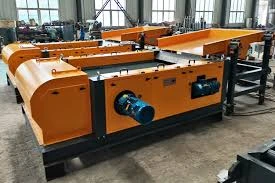Recycling has become a cornerstone of sustainable practices, with metals being one of the most recycled materials due to their inherent value and utility. When considering profitability in metal recycling, it's essential to evaluate various factors such as market demand, energy consumption in recycling processes, and the intrinsic qualities of the metals themselves. Among various metals, aluminum emerges as a top contender for profitability in the recycling industry.

Aluminum's lucrative nature in recycling stems primarily from its endless recyclability. Unlike some materials that degrade over time, aluminum can be recycled repeatedly without loss of its properties. This means that the aluminum cans recycled today might turn into airplane parts, window frames, or new cans in the future. The recycling process of aluminum requires significantly less energy—95% less—compared to producing new aluminum from bauxite ore. This immense energy saving translates directly into cost savings, enhancing the profitability of recycling aluminum.
Another aspect contributing to aluminum’s profitability is its lightweight yet durable nature. As weight is a critical factor in transportation costs within the scrap industry, aluminum offers an economic advantage. Lower transportation costs boost profit margins, making aluminum a financially appealing choice for recyclers. Moreover, the metal's versatility and widespread use across various industries, from automotive to packaging, ensures a consistent high demand. The steady global demand stabilizes the market, providing recyclers with predictable income streams.

Copper ranks closely behind aluminum as a profitable metal for recycling. Known for its excellent electrical conductivity, copper remains indispensable in the electrical and electronics sectors. The profitability of copper recycling is driven by its relatively high market value. Copper prices tend to remain robust due to its key role in infrastructure, telecommunications, and technology industries. Additionally, like aluminum, copper maintains its physical and chemical properties upon recycling, allowing its continual reuse with minimal environmental impact.
what is the most profitable metal to recycle
In terms of market dynamics, both aluminum and copper exhibit favorable long-term trends that enhance their profitability potential. With the global shift towards renewable energy and electric vehicles, the demand for these metals is set to increase. Aluminum’s role in lightweighting vehicles to improve fuel efficiency and copper’s critical function in electrical components position them as vital resources in a greener economy.
However, profitability in recycling is not solely determined by a metal's inherent qualities. Operational factors such as the efficiency of recycling facilities, geographical location relative to scrap sources and markets, and the prevailing regulations also play crucial roles. Successful recycling businesses capitalize on technology advancements to improve sorting, processing, and recovery rates. For instance, investment in state-of-the-art eddy current separators can enhance the recovery of non-ferrous metals like aluminum and copper, thereby optimizing profitability.
Trustworthiness is further enhanced by recycling companies that adhere to ethical sourcing and processing standards. By ensuring transparency in processes and committing to environmentally responsible practices, recyclers build credibility and long-term relationships with stakeholders. This reliability not only fosters community goodwill but often aligns with governmental and corporate sustainability goals, potentially unlocking additional funding and partnership opportunities.
In summation, while aluminum stands out as the most profitable metal to recycle due to its energy efficiency, endless recyclability, and market demand, copper also presents substantial profit opportunities bolstered by high intrinsic value and critical industrial applications. Success in recycling these metals hinges on advanced technology adoption, strategic operations, and a commitment to ethical environmental practices. As global environmental awareness and legislative pressures increase, the profitability and strategic importance of recycling, particularly metals like aluminum and copper, are poised for significant growth.



